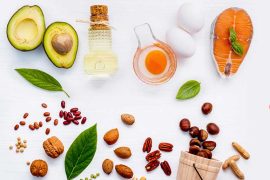Transitioning to summer with unseasonal rains can indeed impact the immune system, making it vital to adapt dietary habits that support and enhance our body’s immune function. This clinical guide offers insights into immune-boosting foods and dietary recommendations specifically tailored for the changing season. As temperatures rise and the environment evolves, understanding how to nourish our bodies with foods rich in vitamins, minerals, and antioxidants becomes essential for maintaining optimal health. By incorporating immune-boosting foods into our diet and following tailored dietary tips, we can better equip our bodies to thrive during the transition to summer, even amidst unseasonal rains.
Indeed, the immune system undergoes adaptations in response to environmental shifts, rendering individuals more susceptible to infections during seasonal changes. Adequate nutrition is paramount in fortifying the immune system, as it plays a pivotal role in ensuring optimal defense against pathogens. By consuming a balanced diet rich in essential nutrients, vitamins, minerals, and antioxidants, individuals can support their immune system’s ability to combat infections and maintain overall health. Additionally, lifestyle factors such as regular exercise, sufficient sleep, and stress management further contribute to bolstering immune function.
Adopting a nutrient-rich diet tailored to seasonal transitions is a proactive approach to supporting immune health. By incorporating a variety of immune-boosting foods rich in essential nutrients, individuals can provide their bodies with the necessary resources for a robust defense against potential infections. It’s crucial to embrace dietary changes that align with the specific needs of the changing season, promoting overall well-being and resilience. However, it’s important to note that individual health conditions may vary, so consulting with a healthcare professional for personalized advice is always recommended.
Essential Nutrients for Immune Support:
- Vitamin C: Found abundantly in citrus fruits, strawberries, bell peppers, and broccoli, vitamin C enhances the production of white blood cells and antibodies, crucial for immune defense.
- Vitamin D: Obtained from sunlight exposure and dietary sources like fatty fish and fortified dairy products, vitamin D regulates immune cell function and supports antimicrobial defense.
- Zinc: Present in nuts, seeds, legumes, and lean meats, zinc is critical for the development and function of immune cells, contributing to a robust immune response.
- Probiotics: Found in fermented foods such as yogurt, kefir, and sauerkraut, probiotics maintain a healthy balance of gut bacteria, which positively influences immune responses.
Seasonal Transition Dietary Recommendations:
- Increase Hydration: Adequate water intake is essential for overall health and immune function. Incorporating hydrating foods like watermelon, cucumber, and leafy greens can also contribute to hydration.
- Focus on Fresh, Colorful Produce: Consuming a variety of fruits and vegetables rich in vitamins, minerals, and antioxidants is key. Seasonal options like berries, melons, and leafy greens provide essential nutrients for immune support.
- Incorporate Omega-3 Fatty Acids: Found in fatty fish, flaxseeds, and walnuts, omega-3 fatty acids support anti-inflammatory responses and enhance immune cell activity.
- Herbs and Spices: Utilizing immune-boosting herbs like garlic, ginger, and turmeric in cooking can provide anti-inflammatory and antimicrobial benefits, supporting immune function.
Meal Planning Tips:
- Balanced Macronutrients: Ensuring a well-balanced diet with adequate proteins, carbohydrates, and healthy fats is essential. Proteins are particularly important for immune cell structure and function.
- Limit Processed Foods: Minimizing the consumption of processed and sugary foods is advised, as they can impair immune function. Opting for whole, nutrient-dense foods supports overall health and immune function.
- Moderate Alcohol and Caffeine: Excessive intake of alcohol and caffeine can compromise immune function. Consuming these beverages in moderation is recommended for maintaining immune health.
By incorporating these dietary recommendations and meal planning tips into your routine, you can support your immune system during seasonal transitions and promote overall health and well-being.
Absolutely, as seasons transition, the types of germs and viruses we encounter change as well. Maintaining a strong immune system is crucial for avoiding illness during these transitional periods. While practices like hand washing, getting adequate sleep, and managing stress are essential, the role of diet in immune health should not be overlooked. Loading up on immunity-boosting foods can provide the body with essential nutrients and antioxidants to bolster its defenses. Including a variety of fruits, vegetables, whole grains, lean proteins, and healthy fats in your diet can help support immune function and keep you healthy as the seasons shift.
These foods are indeed excellent choices for boosting the immune system:
- Citrus Fruits: Rich in vitamin C, citrus fruits like oranges, grapefruits, lemons, and limes act as antioxidants, neutralizing free radicals and promoting the production of white blood cells that fight infection.
- Red Bell Peppers: Surprisingly, red bell peppers contain even more vitamin C than oranges. They’re also high in beta carotene, which the body converts into vitamin A, supporting immune regulation and maintaining healthy skin and tissues.
- Broccoli: This nutrient-dense vegetable is packed with vitamins A, C, and E, fiber, antioxidants, and phytochemicals. Its high glutathione content boosts the production of the body’s master antioxidant, aiding in infection prevention.
- Garlic: Known for its anti-viral, anti-fungal, and anti-bacterial properties, garlic contains allicin, a sulfur-containing compound that enhances the immune system’s disease-fighting abilities. Allowing garlic to sit for 10 minutes after chopping or crushing activates its immune-boosting properties.
- Ginger: With its high levels of antioxidants and anti-inflammatory compounds called gingerols, ginger is a powerful immune system warrior. It can alleviate nausea, muscle and joint pain, and respiratory issues, making it a versatile addition to various dishes or as a tea ingredient.
- Yogurt: Choose yogurts containing live and active culture strains like lactobacillus and bifidobacterium, as these probiotic bacteria promote a healthy gut microbiome, enhancing immune function and inhibiting harmful bacteria growth. Greek yogurt is also a good protein source for fueling immune cells.
Incorporating these immune-boosting foods into your meals and snacks can provide essential nutrients and compounds to support overall health and strengthen the immune system.
Disclaimer:
The information contained in this article is for educational and informational purposes only and is not intended as a health advice. We would ask you to consult a qualified professional or medical expert to gain additional knowledge before you choose to consume any product or perform any exercise.







